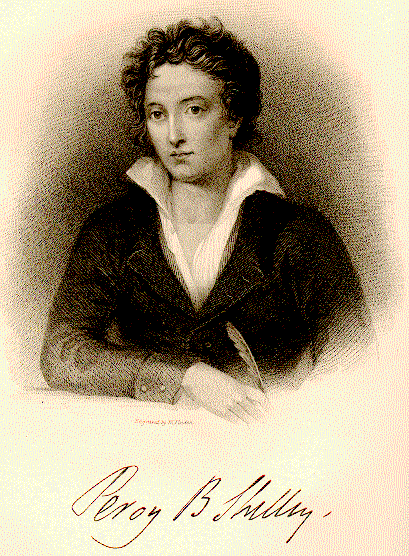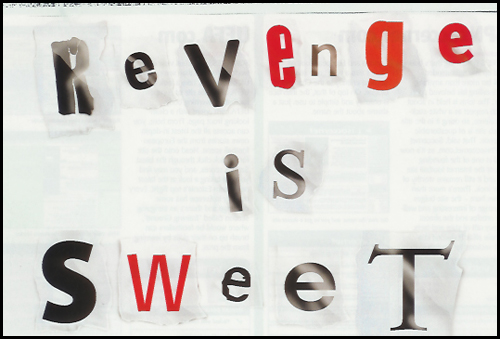Oh, the opening credits - I miss those. Lovely music, a score made specifically for the opening; a panorama of scenery - even the lettering of the credits is special. And who can object to Laurence Olivier or Merle Oberon?
*These are immediate reactions to the film while watched on youtube.
- An older man comes into W.H. through horrendous weather; it's Mr. Lockwood!
- Olivier is a perfect Heathcliff from the first frozen stare he directs at Lockwood - it's rather amazing. I'm well aware of how amazing an actor he is, but the way he assumes the character is startling. He yells like I imagined Heathcliff would, and gives orders like I imagined.
- Joseph is rather toned down in the beginning - even polite.
- Lockwood hears young Catherine's voice - "Let me in, let me in", and yells for Heathcliff. Instead of reading a book and finding out the name of the woman, the voice tells him her name. Heathcliffe's reaction is the same as in the book, though.
- Nelly Dean works in the house in the movie from the start of it - and she tells him the story of Catherine's life while Heathcliff is out on the moores, after her.
- This made me think that Nelly had never told this story before/
- Starts with the children, Hindley and Cathy, getting cleaned up in time for their father's return.
- Heathcliff, as a child, is immediately very attached to Mr. Earnshaw - and next, one sees him striking up a very close friendship with Catherine.
- They're so young, but they ride so dangerously! They're a reckless pair!
- Catherine gives him the idea to capture the Earnshaw fortune with, "Princes take their castles - you'll have to take your's!"
- Mr. Earnshaw dies; Mrs. Earnshaw is never introduced. Hindley forbids Heathcliff from viewing the body immediately after, and crushes him by telling him to fulfill the duty of a servant - getting a horse ready. In the movie, Heathcliff mourns his adopted father's death.
- "It was no longer the happy home of their childhood" - Hindley assumes head of the household, and Heathcliff bides his time to take revenge.
- There are already hints of Hindley's future dissipation - he has three cups of wine at the meal, and acts as abusively towards his sister as he does towards Heathcliff.
- The moment he's gone, Catherine is out on the moors - and Heathcliff joins her. "It would be dreadful it Hindley ever found out," Catherine says. She means hanging out with him. "Why can't you rescue me, Heathcliff?"
-
Where are the Lindon children?? Aha. The moment when they sneak up on the Lindon's in the book, they sneak up on a party in the movie. Catherine adores seeing into that world, but Heathcliff is generally unimpressed.
- Catherine sends him away after her injury; she tells him to bring her back, "the world"; Heathcliff curses the Lindon family, and spits on the floor, promising to take over their fortune.
- "Why did you stay so long?" "Because I was having a wonderful time... among human beings." She immdiately tries to improve him, and embarrasses him in front of Edgar Lindon. He leaves instead of acquiescing to Catherine's demand to wash and neaten up.
- Cathy shows spirit when Edgar calls Heathcliff a "blackguard". She tells him to "get out!" Then she yanks off her fancy outfit and runs out on the moores, meeting with Heathcliff at their usual spot, in her old clothes. She asks his forgiveness.
- They kiss. The narrator's voice talks about Catherine's indecision between Edgar and Heathcliff. Heathcliff interrupts their preparations for a party she wants to attend, to talk to her about not talking to Edgar. She chides him for his status and dirtiness, and he's terribly hurt.
- They fight - they're very critical of each other; "That's all I've become to you, a pair of dirty hands." Then he slaps her - she's shocked.
Their squabblings and criticisms are reminiscent of Cathy, Jr.'s treatment of Hareton.- Heathcliff comes into the house and hides when Cathy comes downstairs to tell Nelly Edgar's asked her to marry him; Cathy loves him for the status she'll gain. When Nelly reminds her about Heathcliff, she gives her "it would degrade me to marry him"-speech.
Personally, the Heathcliff shown is not as brutal or terrible as in the novel. The way the story is told and the way Olivier acts, it's easier to sympathize with him - probably because every detail can't be told as well in two hours. - Heathcliff runs away - Catherine runs after him in the storm, and gets drenched. Hindley returns, drunk, and suggests celebrating Heathcliff's departure instead of looking for Cathy.
- A very ill Catherine is dragged back into the Lindon home for copious amounts of TLC. "Keep her in the sun, and give her plenty of cream and butter," says the doctor. He tells Nelly that "peace and quiet" are necessary to heal her. She hasn't spoken of Heathcliff, and he hasn't been seen since that night.
- Edgar is rather likable here - the weakness and silliness of his character in the novel don't show up here much. Catherine clearly pines for Heathcliff, but she decides on Edgar.
- Catherine assumes the role of a lady to a T; one day, three years later, Nelly tells Catherine that Heathcliff has come for a visit. She reluctantly sees him, at Edgar's coaxing, no less!
- Heathcliff is... dressed in a dark suit, and very grave. He's so sombre, and kind of gloomy. He can only stare at Catherine, nothing else; he's also very uncommunicative. Heathcliff meets Isabella. In the movie, he just bought Wuthering Heights, in a way - he says it'll be a surprise when Hindley finds out that his debts were paid by Heathcliff. Edgar expresses outrage at this, but Catherine demands, if he visits, he needs to do so with some cheerfulness.
- Hindley, by now, is always drunk; he wants to lock Heathcliff out and shoot him if he comes in. Heathcliff says, "I allow you to remain here, Hindley," as a way of exacting revenge on a withering character of a man. "I'm master here now."
- Isabella goes to visit Heathcliff after her horse goes lame - probably an excuse. She tells him she thinks her brother and sister-in-law acted "shamefully"; Heathcliff is clearly musing on more plans of revenge using her.
- Another dance party scene, this one attended by Heathcliff the Gentleman (at Isabella's request). Nelly is immediately alarmed. Catherine appears upset when she notices he's there, but she can't look away. She seems to immediately guess his plans.
- Catherine talks to Isabella about fancying Heathcliff, but the latter won't listen. She thinks Cathy is jealous. Isabella, curiously, accuses Catherine of acting with destruction in mind - like Heathcliff really is.
- Catherine visits Heathcliff at Wuthering Heights - when the two of them appear on screen together, they have a special music playing. Catherine asks him not to marry Isabella, and he says he will to get back at her. "But no, you must destroy us both with that weakness you call virtue," he says. "After this, you can think of me as Isabella's husband." Here, he does it to spite her, primarily.
- When she gets back to the Grange, Isabella is gone - she left a note. Catherine gets so upset, Edgar finally gets an inkling of how she feels about him.
- Fast-forward a bit: Mrs. Isabella Heathcliff is now somewhat aware of her husband's true nature. There's a part of her that still wants to help Heathcliffe, but he refuses to see it. She also finds out from the doctor that Catherine is very ill, and Edgar might need her. The doctor says it's beyond physical ills, "a will to die". Isabella says, "If Cathy died... I might begin to live."
- Nelly shows up to bring Isabella home for a visit, because of Catherine. Heathcliff reads it in Nelly's face, and Heathcliff runs to see her.
- Catherine is speaking in a half-crazy way, asking for heather from the castle. While Edgar does that, she's alone and Heathcliff visits. They enact the passionate, horrific goodbye-scene.
The look on Oberon's face as Catherine is almost exactly what I imagined from the book - wide-eyed, alarming, ecstatic, and crazed.-
Nelly is not involved in communications between H & C here like she is in the novel. She's present at important parts, but neither person drags her in the way they do in Bronte's book.
-
Oh my! She dies in his arms, while they stare the moores one last time - she goes limp, and he's left holding her body up! That's kind of gruesome!!- So far, Hareton hasn't made a single appearance - I suspected it, but I don't think the next generation is going to atone for the past generation's lack of love and kindness. Mrs. Heathcliff, though, made a very brief appearance at the beginning - only without the fire from before.
- Then the doctor comes along at the time Nelly's telling the story; he says he saw Heathcliff on the moores with a woman. Then, after following, he found him at the crags, dead. Nelly says, "He's with her... they've only just begun to live.... Goodbye, my wild, sweet Cathy."
Trailer for 1992 film: Juliet Binoche makes a fantastic Catherine - she's better in terms of the physicality and craziness as Catherine.



























